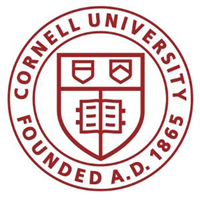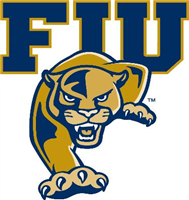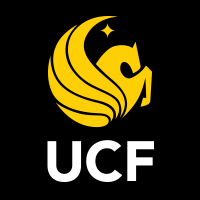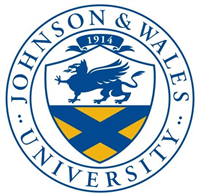What do they do?
Plan, direct, or coordinate activities of an organization or department that serves food and beverages.
Also known as:
Banquet Manager, Cafeteria Manager, Catering Director, Catering Manager, Club Manager, Clubhouse Manager, Deli Manager, Dining Services Director, Food and Beverage Director, Food and Beverage Manager, Food Service Director, Food Service Manager, Food Service Supervisor, Kitchen Manager, Restaurant General Manager, Restaurant Manager
-
10.5%
Change
Ranks #50 in job growth rate1,350Job Openings
Ranks #10 in net job growth
-
Cornell University
Ithaca, NY
-
Florida International University
Miami, FL
-
Johnson & Wales University-Providence
Providence, RI
-
University of Nevada-Las Vegas
Las Vegas, NV
-
University of Central Florida
Orlando, FL
Looking for colleges that offer a specific major? Use the College Match Tool to find your best-matched schools and discover your estimated Net Price!
- Doctorate or Professional Degree (1%)
- Master's degree (4%)
- Bachelor's degree (22%)
- Associate's degree (10%)
- Some college, no degree (26%)
- High school diploma equivalent (29%)
- Less than high school diploma (10%)
Most Popular Majors that prepare Food Service Managers
-
#1
-
Degrees Granted
8,675
-
Female Students
6,070
-
Male Students
2,605
-
Median Starting Salary
$40,600
-
-
#2
-
Degrees Granted
1,708
-
Female Students
1,095
-
Male Students
613
-
Median Starting Salary
$40,600
-
-
#3
-
Degrees Granted
812
-
Female Students
501
-
Male Students
311
-
Median Starting Salary
$33,600
-
-
#4
-
Degrees Granted
722
-
Female Students
436
-
Male Students
286
-
Median Starting Salary
$40,600
-
-
#5
-
Degrees Granted
629
-
Female Students
401
-
Male Students
228
-
Median Starting Salary
$40,600
-
People in this career often have these skills:
- Service Orientation - Actively looking for ways to help people.
- Active Listening - Giving full attention to what other people are saying, taking time to understand the points being made, asking questions as appropriate, and not interrupting at inappropriate times.
- Speaking - Talking to others to convey information effectively.
- Monitoring - Monitoring/Assessing performance of yourself, other individuals, or organizations to make improvements or take corrective action.
- Management of Personnel Resources - Motivating, developing, and directing people as they work, identifying the best people for the job.
- Reading Comprehension - Understanding written sentences and paragraphs in work-related documents.
- Critical Thinking - Using logic and reasoning to identify the strengths and weaknesses of alternative solutions, conclusions, or approaches to problems.
- Social Perceptiveness - Being aware of others' reactions and understanding why they react as they do.
- Coordination - Adjusting actions in relation to others' actions.
- Time Management - Managing one's own time and the time of others.
- Active Learning - Understanding the implications of new information for both current and future problem-solving and decision-making.
People in this career often know a lot about:
- Customer and Personal Service - Knowledge of principles and processes for providing customer and personal services. This includes customer needs assessment, meeting quality standards for services, and evaluation of customer satisfaction.
- Administration and Management - Knowledge of business and management principles involved in strategic planning, resource allocation, human resources modeling, leadership technique, production methods, and coordination of people and resources.
- English Language - Knowledge of the structure and content of the English language including the meaning and spelling of words, rules of composition, and grammar.
- Personnel and Human Resources - Knowledge of principles and procedures for personnel recruitment, selection, training, compensation and benefits, labor relations and negotiation, and personnel information systems.
- Production and Processing - Knowledge of raw materials, production processes, quality control, costs, and other techniques for maximizing the effective manufacture and distribution of goods.
- Food Production - Knowledge of techniques and equipment for planting, growing, and harvesting food products (both plant and animal) for consumption, including storage/handling techniques.
- Education and Training - Knowledge of principles and methods for curriculum and training design, teaching and instruction for individuals and groups, and the measurement of training effects.
- Mathematics - Knowledge of arithmetic, algebra, geometry, calculus, statistics, and their applications.
- Public Safety and Security - Knowledge of relevant equipment, policies, procedures, and strategies to promote effective local, state, or national security operations for the protection of people, data, property, and institutions.
- Sales and Marketing - Knowledge of principles and methods for showing, promoting, and selling products or services. This includes marketing strategy and tactics, product demonstration, sales techniques, and sales control systems.
People in this career often have talent in:
- Oral Comprehension - The ability to listen to and understand information and ideas presented through spoken words and sentences.
- Oral Expression - The ability to communicate information and ideas in speaking so others will understand.
- Problem Sensitivity - The ability to tell when something is wrong or is likely to go wrong. It does not involve solving the problem, only recognizing that there is a problem.
- Written Comprehension - The ability to read and understand information and ideas presented in writing.
- Deductive Reasoning - The ability to apply general rules to specific problems to produce answers that make sense.
- Speech Clarity - The ability to speak clearly so others can understand you.
- Written Expression - The ability to communicate information and ideas in writing so others will understand.
People in this career often do these activities:
- Monitor activities of individuals to ensure safety or compliance with rules.
- Maintain regulatory or compliance documentation.
- Resolve customer complaints or problems.
- Maintain operational records.
- Manage inventories of products or organizational resources.
- Monitor organizational procedures to ensure proper functioning.
- Manage organizational or project budgets.
- Evaluate quality of materials or products.
- Schedule product or material transportation.
- Manage guest services.
- Monitor organizational compliance with regulations.
- Collect payments for goods or services.
- Develop organizational policies or programs.
- Perform manual service or maintenance tasks.
- Provide basic information to guests, visitors, or clients.
- Prepare staff schedules or work assignments.
- Estimate cost or material requirements.
- Direct facility maintenance or repair activities.
- Schedule activities or facility use.
- Negotiate sales or lease agreements for products or services.
- Analyze data to inform operational decisions or activities.
- Evaluate employee performance.
- Manage human resources activities.
- Recommend organizational process or policy changes.
- Determine resource needs.
- Recruit personnel.
- Purchase materials, equipment, or other resources.
- Advise communities or institutions regarding health or safety issues.
- Create new recipes or food presentations.
- Prepare foods or meals.
This page includes data from:

 Occupation statistics: USDOL U.S. Bureau of Labor Statistics Occupational Employment Statistics
Occupation statistics: USDOL U.S. Bureau of Labor Statistics Occupational Employment Statistics









